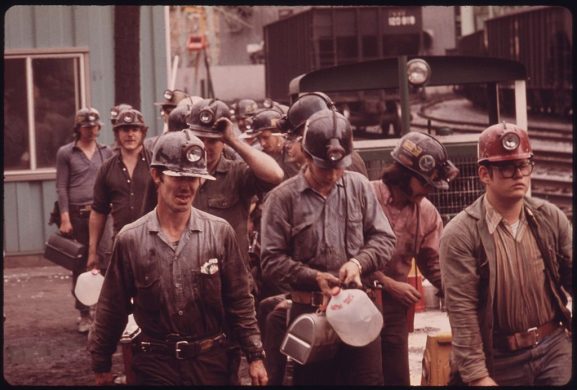Det er hovedpointen i en artikel i det seneste nyhedsbrev fra We Mean Business, en tænketank, som arbejder med erhvervslivets bidrag i kampen mod klimaforandringer.
I recently came across the story of Ed Woolsey, a fifth-generation farmer from Iowa. In recent years his crop has changed radically.
“Before, I raised corn and soybeans and cattle”, he told Bloomberg. “Now… I’m a wind farmer.”
He’s part of a community collective that manages 10 wind turbines and sells the power to rural electric cooperatives. By 2030, rural landowners in the US are projected to generate as much as $900 million a year in revenues from wind energy, according to the report.
Taking a failing sector or business and helping it move to towards a new, low-carbon growth area has become known as a ‘just transition’.
Our partners at The B Team, and Sharan Burroughs of the International Trade Union Confederation (ITUC), have done a great deal to highlight the importance of this issue.
The concern is that as we move into a low-carbon future, a just transition is needed to ensure that the impact on local employment and economies is managed in a way that allows the obsolete jobs and sectors to be replaced by equally skilled and well-paid, low-carbon jobs. Examples include Pittsburgh, formerly an industrial steel city, now reinventing itself as a leader in autonomous cars.
Danger of an unjust transition
But there is also a very real danger of an unjust transition.
Blindness to unintended consequences, or a lack of adequate planning and management to ensure opportunities for local jobs and economies are maximised, could lead to public sentiment quickly turning against the effort to combat climate change.
For example, the shift to electrification of vehicles is continuing apace, with a recent report by Climate Action Tracker (CAT) suggesting the last gasoline-powered car will have to be sold by around 2035 to put the world on track to meet its 2°C target.
Certain car makers, such as VW, have warned this is likely to cost jobs because of fewer components needed in the production process.
While many companies, such as Tesla, are focusing on autonomous electric car prototypes. Unmanaged, these changes will have potentially huge implications on jobs in the automotive supply chain and for professional drivers.
Some of this is Schumpeterian creative destruction, as businesses either adapt or become gobbled up the new order. And while progress of this kind is exciting and paradigm shifting at a macro level from both an economic and low-carbon perspective; that’s not how it is likely to be felt by the people whose usurped businesses and jobs are at stake.
Instead of celebrating the closing of coal-fired power stations, we not only need to sensitively acknowledge how transitions impact at an individual and community level, but mitigate the impact as far as possible.
Exacerbate political divisons
Otherwise we will exacerbate the political divisions that already exist.
When you look at the current political polarisation around the world, particularly in Europe and America, the sense of injustice, of being left behind – whether it is true or not – is exactly what populist politicians are playing to, and it is a potentially destabilising risk for society at large.
We can't think narrowly about climate as we go forward, we have to think more politically about the overall balance of jobs and wealth distribution.
A resurgence of protectionism and anti-globalisation is bad for business and likely to slow down positive change. Typically, when populist governments move in that direction they prop up industries that would otherwise die out.
Businesses should seek out the new opportunities, rather than ask for the hand-outs that come from government protection. DSM used to be a coal mining company – it is now a materials and nutritional science company. There are plenty of examples of businesses that have skilfully made these transitions.
Attracting industries of the future
It is possible to constructively engage with the inevitable transition, supporting the communities where jobs are being lost by attracting the industries of the future.
If you look at the success of Nissan in the North East of England, that required bold investment from the private sector into a geographical market of available, trainable, skilled labour.
The important thing is to invest in the future, not the past. In Iowa, Ed Woolsey had seen the price of corn fall from $7.00 a bushel to $4.20 and finally close to $2.70.
He could have kept doing what he was doing and watch his situation slowly become untenable. Or he could, with a nudge from government (in this case a federal tax credit), transition to a profitable future. Fortunately, he chose the latter. We need to help others to do the same.















